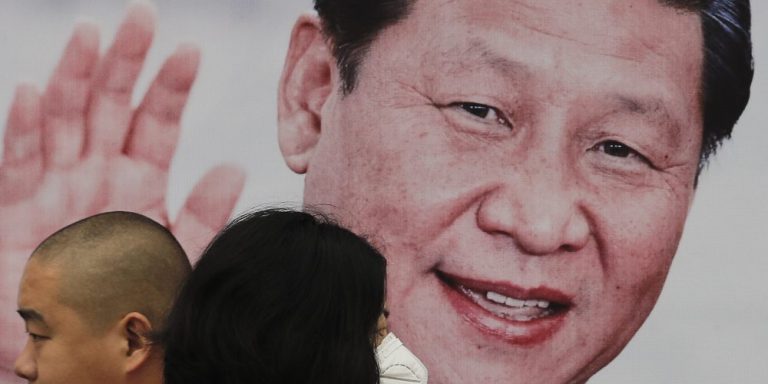INTELBRIEF
February 27, 2018
TSC IntelBrief: A Huge Shift in China

- The Chinese Communist Party is expected to abolish the two-term limit for president and vice president it enacted to avoid the extreme leader-focused rule it experienced under Mao Zedong.
- This move would make current president Xi Jinping the country’s indefinite leader; along with the other titles he holds—military chief and general secretary of the communist party—which also have no term limits.
- The move cements not just Xi’s rule but his ‘thought’ and concept of a strong, nationalistic China that is ready to confront neighbors as well as the U.S.
- An increasingly assertive and autocratic China will be among the most important developments in geopolitics for years to come.
Some issues that make news globally are less significant than they initially appear. The Chinese Communist Party abolishing its two-term limit for the country’s president and vice president is likely more significant than it appears. Chinese president Xi Jinping is working to expand and solidify his hold on power in the most populous country on the planet, which may change the way China interacts with its neighbors, the EU, and the U.S. The combined effect of a very powerful Chinese president leading his nation indefinitely, and a country determined to act increasingly more aggressively in regional and world affairs, will have enormous significance for decades.
With the death in 1976 of Mao Zedong, the founder of modern communist China, the party he headed was determined to avoid another cult of personality. Term limits were instituted for the president and vice president to two consecutive terms. Since then, there have been powerful Chinese presidents but no one approaching the level of Mao, who not only ruled the country’s government, but also its ‘thought.’ Leaders such as Deng Xiaoping, Jiang Zemin, and Hu JinTao stressed an economically advancing China, with internal stability as a crucial part of that economic growth. Xi has continued this but with a much more nationalistic focus.
Under Xi, China has moved from contesting maritime claims over disputed waters using ancient maps and treaties to simply building its own islands in disputed areas. These are no small endeavors, and by changing the actual topography and creating a permanent military/naval presence, China has positioned itself to challenge the U.S. over the lanes of navigation in what China sees as its historic territorial waters. These waters are among the most important global sea lanes, through which much of the world’s goods pass.
Xi assumed power in 2013 and was expected to serve two five-year terms in keeping with the post-Mao rules. Changing the constitution so early in his presidency is a sign that Xi wants to cement his rule now, regardless of future events or downturns. He had already made a significant and ominous mark on the country’s politics and society when, in January 2018, the 19th Communist Party amended its constitution to include ‘Xi Jinping Thought on Socialism with Chinese Characteristics for a New Era.’ Not since Mao had there been such a contemporary personal influence on the society at large. ‘Xi Thought’ was added to the constitution because, as the Party noted, it had created a nationalistic ‘fervor’—a fervor that Xi wants to use to bring China to what he sees as its rightful place in the world order. The changes in China coincide with a U.S. that is stepping back as a world leader. Long an economic power, China has made significant progress in its military capabilities, and now with the emerging Xi reign, it will likely become more assertive in regional and global affairs while seeking to replace the U.S., at least in its sphere of influence of Asia, as the predominant power.
.
For tailored research and analysis, please contact: info@thesoufancenter.org
[video width="960" height="540" mp4="https://thesoufancenter.org/wp-content/uploads/2018/02/Final-Edit-1-139.mp4" poster="https://thesoufancenter.org/wp-content/uploads/2018/02/AP_17300831030783-1.jpg"][/video]